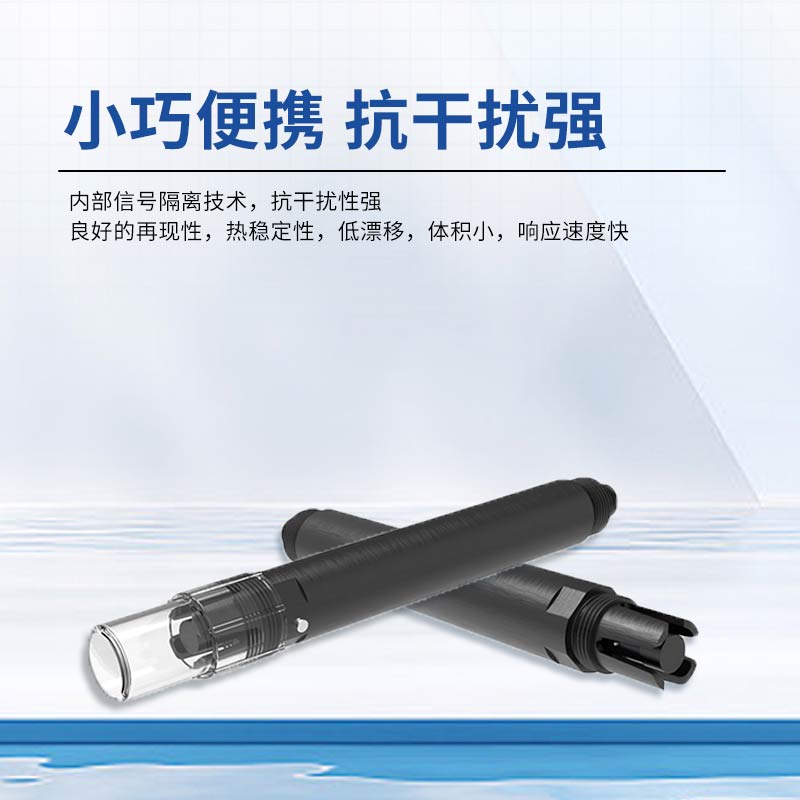Shandong Fengtu IOT Technology Co., Ltd
Sales Manager:Ms. Emily Wang
Cel,Whatsapp,Wechat:+86 15898932201
Email:info@fengtutec.com
Add:No. 155 Optoelectronic Industry Accelerator, Gaoxin District, Weifang, Shandong, China

Sales Manager:Ms. Emily Wang
Cel,Whatsapp,Wechat:+86 15898932201
Email:info@fengtutec.com
Add:No. 155 Optoelectronic Industry Accelerator, Gaoxin District, Weifang, Shandong, China
time:2025-03-25 09:59:23 source:Weather Station viewed:489 time
When it comes to the advantages of water quality sensors, they can be summarized in six words: real - time, continuous, and automatic.
Since the sensors can be directly deployed in water bodies (such as rivers, sewage treatment plants, water supply pipe networks, etc.), they collect water quality parameters (such as pH value, dissolved oxygen, turbidity, etc.) in real - time through electrochemical, optical, or biochemical reaction principles. These parameters are converted into electrical signals, processed by the built - in processor, and then the data is immediately transmitted to the monitoring platform or the cloud without human intervention.
Wireless transmission technologies (such as the Internet of Things and mobile networks) enable remote monitoring. Users can view water quality dynamics at any time through mobile phones or computers.
Traditional laboratory testing requires manual sampling and then sending the samples for inspection, which has a time lag (for example, the BOD index may change during transportation). In contrast, online sensors can automatically sample at a set frequency (such as once a minute), accelerating the update speed.
Through cloud computing and big data analysis, the system can automatically identify abnormal data and trigger warnings. For example, a sudden drop in dissolved oxygen concentration may indicate the risk of water eutrophication.
With water quality sensors, we can basically achieve unattended, all - weather, and high - precision water quality monitoring, greatly improving the monitoring efficiency.
There is a wide variety of water quality sensors, which can cover the real - time monitoring needs of many key parameters in water bodies. Specifically, there are ammonia nitrogen sensors, oil - in - water sensors, dissolved oxygen sensors, COD sensors, cyanobacteria sensors, sludge concentration sensors, chlorophyll sensors, transparency sensors, chloride ion sensors, residual chlorine sensors, suspended solids sensors, turbidity sensors, conductivity sensors, ORP sensors, pH sensors, water temperature sensors, hardness sensors, and so on.
Fengtu Technology focuses on the research and development, production, and sales of instruments for meteorological environment monitoring and water quality monitoring. Currently, it has launched a variety of sensors and monitoring systems, such as pole - mounted online water quality monitoring stations, turbidity, pH, conductivity, and temperature four - parameter online monitors, etc. The products support the RS485/MODBUS - RTU protocol and can be integrated into the Internet of Things platform for remote monitoring. They are widely used in industries such as environmental protection monitoring, sewage treatment, and aquaculture, providing reliable solutions for water quality monitoring.

Automatic weather station for ships, is a device used on ships to monitor the weather conditions at sea. It includes: weather data processing system, automatic weather station and other components. Among them, the automatic weather station is responsible for collecting weather data and transmitting...
Rainwater online monitoring system can effectively monitor the rainfall situation in real time, and also has data storage and analysis functions, which plays a very important role in rainfall warning and flood prediction. Windway Technology is a manufacturer of rainwater online monitoring system, pr...
Although the Air quality monitoring station is a fixed facility, its greatest advantage lies in its ability to achieve a high-density and refined regional monitoring layout.There are a limited number of large-scale air quality monitoring stations, and they are sparsely distributed. They can of...
With the arrival of winter, snowfall becomes a common occurrence, which not only reduces visibility but also brings many inconveniences to people's travel, increasing the risk of traffic accidents and affecting the efficiency of airports, stations, and ports. Therefore, monitoring changes in air...